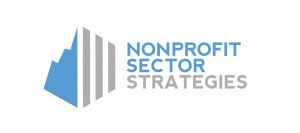Do you have the drive and commitment to help develop the fastest growing children’s grief organization on Long Island?
Would you like to be an integral part of an independent, forward-thinking nonprofit?
Are you passionate about supporting Long Island children who are coping with the death of a parent and/or sibling.
Camp Good Mourning! is actively recruiting dynamic, driven board members to join our team.
The Board of Directors provides oversight and guidance to the Executive Director(ED) and the nonprofit’s other staff members. The Board ensures that CGM! stays aligned with its mission and values in addition to complying with all federal and state laws.
1. Legal oversight
The Board ensures that it is operating in accordance with its mission and the purpose for which it was granted tax-exempt status. Board Members should constantly re-read CGM’s! mission statement to ensure that everything they do on behalf of the CGM! is in furtherance of the CGM!’s mission.
As safeguards of the public trust, Board Members are responsible for protecting CGM’s! assets; ensuring that CGM’s! control environment is effective; prudently deploying resources; and providing direction and governance.
The Board ensures legal and ethical integrity and maintains accountability.
2. Management Oversight
The Board is responsible for ensuring that CGM! is operating effectively. It is the Board’s responsibility to select the Executive Director and outline his/her role; the Board supports the ED and assesses his/her performance (should be performed in a written evaluation); the Board determines appropriate compensation for the ED and other executive Staff members; and the Board has the power to hire and remove the ED.
3. Fiscal Oversight
The Board provides Fiscal oversight, including setting and approving the annual budget. This does not mean the Board prepares the budget nor does it mean that the Board should micromanage the budget process. The Board should review and gain an appropriate understanding of the budget, ensure that CGM! is establishing appropriate reserves, revenues, and expenses make sense and are supportable, and monitor CGM’s! fiscal health and actual operations compared to budget on a regular basis. Board members have to have at least a basic knowledge of how CGM! generates revenue and its cost structure to be able to understand if its proposed budget is reasonable. The fiscal aspects of CGM! are not always the easiest to understand, but is its lifeblood.
Part of the role of the Board is to ensure that CGM! has the financial resources it needs. As a result, Board members are involved in the CGM!’s fundraising efforts. Fundraising is essential to CGM! In addition, CGM! requires a “Give AND Get” commitment for its Board members. This is something you should understand before joining CGM’s! Board.
4. Program Oversight
It is the Board’s responsibility to ensure that programs are in place to further the mission and goals of the CGM!.
Board of Directors Responsibilities
1. Define CGM’s!(CGM’s) mission and purpose
It is the Board’s responsibility to define and review the statement of mission and purpose, which lays out CGM!’s goals, resources, and primary constituents served. Too often organizations move outside their core mission, chasing funding that may not be appropriate. The Board is in charge of keeping CGM! on track. We encourage Board members to re-read the CGM!’s mission before each Board meeting so that they have a clear understanding of what is guiding their decisions.
2. Choose, evaluate, and set the compensation for the Executive Director (ED)
Boards must reach consensus on the ED’s responsibilities and perform a thoughtful search to find the most qualified individual for the position. This includes helping to define responsibilities, compensation, etc. CGM! will create expectations and skill sets needed for this position depending on the other members of management, where CGM! is in its lifecycle, the nature of its funding, etc.
3. Support the ED
The Board should ensure the ED has the moral and professional support he or she needs
to further the mission of the organization. There should be regular, open communication between the Board and the ED. This often happens through CGM’s! Board Chairman/President.
4. Perform effective planning
Boards must actively participate in an overall planning process on a regular basis, and
assist in implementing and monitoring the plan’s goals. Planning should look at short -term and long-term, and should include “what if” scenarios, especially is CGM! relies on government funding that could be tenuous.
5. Monitor and strengthen/eliminate programs and services.
The Board’s responsibility is to determine which programs are consistent with the
CGM’s mission and monitor their effectiveness. For those programs which are not, the Board should consider if such programs should be transferred to another organization. Management should also continue to evaluate whether it is a “buyer(looking to acquire another organization to strengthen/expand its footprint/offerings),” “a seller(looking to merge into another organizations),” or whether it will maintain status quo.
6. Ensure appropriate levels of financial resources
One of the Board’s foremost responsibilities is to secure appropriate funding for the
organization to carry out its mission. Board members are required to help raise funds for CGM! If you are not able to, you may want to consider if you will be an effective Board member.
7. Maintain fiscal oversight
The Board must assist in developing the annual budget and ensure that proper financial
controls are in place. The Board can only do this if it receives regular, adequate financial information. Once again, this includes “what if” modeling so that the agency is prepared if certain funding is not available.
8. Develop new Board Members
All Board members have a responsibility to identify potential new Board members, orient new Board members to the Board, and periodically and appropriately evaluate their own performance.
9. Ensure legal and ethical integrity
Remember, Board members have 3 overriding duties: The Duty of Care, The Duty of
Loyalty, and The Duty of Obedience. Board members are ultimately responsible for adherence to legal standards and ethical norms.
10. Enhance CGM’s! public image
Board members need to be ambassadors for CGM! This includes the public sector
(lobbying activities on behalf of CGM!) and the private sector (bringing on new Board members, raising money and support for CGM!, integrating with constituents, etc.)





No comment yet, add your voice below!